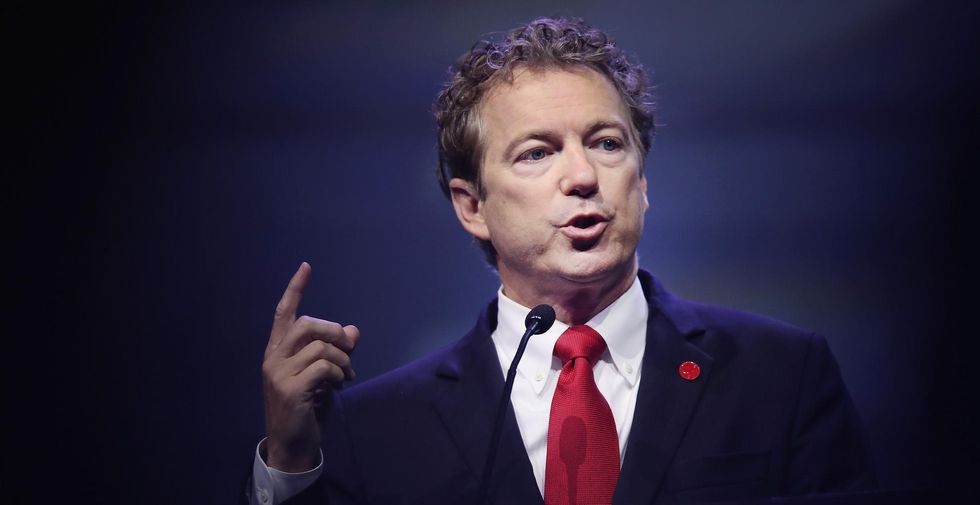
Scott Olson/Getty Images

Sen. Rand Paul (R-Ky.) explained Monday night that he voted against President Donald Trump's pick for CIA director because he worries Rep. Mike Pompeo's (R-Kan.) "desire for security will trump his defense of liberty." The Senate confirmed Pompeo's nomination Monday in a 66-32 vote.
Paul, who wrote about his decision in an op-ed posted at Rare, seems to have two problems with Pompeo: his record on torture and his position on government surveillance.
When the Senate Intelligence Committee released its 2014 report critical of the effectiveness of the CIA's torture program, Pompeo criticized the results, which concluded that "enhanced interrogation techniques" — including waterboarding and sleep deprivation — were "not an effective means of obtaining accurate information or gaining detainee cooperation."
Furthermore, President Barack Obama, whom Pompeo knocked for "ending our interrogation program," banned waterboarding in 2009, just two days after taking the oath of office.
"Our men and women who were tasked to keep us safe in the aftermath of 9/11 — our military and our intelligence warriors — are ... not torturers, they are patriots," Pompeo said in 2014 of the Senate's report.
Though he voted in favor of the 2015 USA Freedom Act, which came as a result of NSA whistleblower Edward Snowden's 2013 revelations about the intelligence community's surveillance of U.S. citizens, Pompeo has since voiced support for reinstating the very powers the previous controversial Patriot Act established.
In 2013, Snowden revealed that the NSA, through the Patriot Act, had been collecting the telephone and internet records of virtually every American citizen and storing that information in a database. The federal agency was storing metadata, often referred to as "data about data." Analysts were collecting data about phone calls, such as the phone numbers of both the caller and the receiver and the duration of conversations, and about emails, including the recipients and time stamps of those messages.
The passage of the USA Freedom Act barred the bulk collection of Americans' telephone and internet metadata and limited the government's data collection to the "greatest extent reasonably practical," which means the intelligence community could no longer collect and store mass amounts of data without cause.
In a 2015 op-ed in National Review, Pompeo asserted that those who suggest the Freedom Act, which he claimed "gutted" the NSA's metadata collection program, enables the intelligence community to better protect the U.S. "are lying."
"To share Edward Snowden’s vision of America as the problem is to come down on the side of President Obama’s diminishing willingness to collect intelligence on jihadis," he wrote. "No Republican candidate who does that is worthy of our vote."
Paul strongly disagrees with the incoming CIA director on both government surveillance and torture.
When it comes to torture, the Kentucky senator wrote that the U.S. "let fear get the better of our responsibility to liberty" following the attacks on 9/11.
"Many of our military leaders, including incoming Sec. of Defense James Mattis, have acknowledged that waterboarding is torture, is ineffective, and sends a signal to our enemies that it is justified to torture U.S. soldiers when they are captured," Paul wrote.
Paul also called the intel community's collection of metadata "an incredible invasion of privacy in some ways more intrusive than the English soldiers that invaded American households to search for any untaxed papers."
"The existence of the database itself is a violation of our right to privacy," he later added. "Our intelligence community needs more oversight, not less."
Paul vowed to be a "skeptic" when it comes to the the CIA and the intelligence community in general because, in his words, "someone must pledge to 'watch the watchers.'"
"I swore an oath to defend the Constitution and the rights of the American people. Shielding the CIA from needed oversight is not consistent with that oath," he concluded.